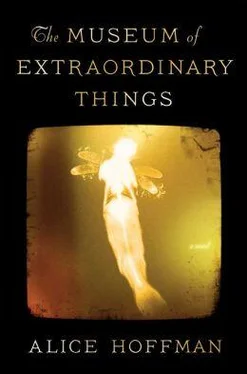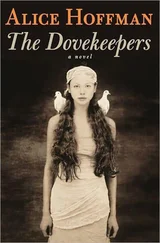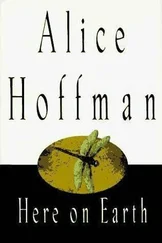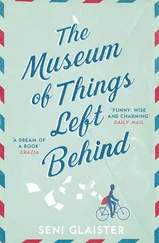It was November, and frost was forming in patches on the grass. I would soon be turning thirteen, but I knew I wouldn’t be standing with the men in the shul to recite the bar mitzvah prayers, though my reading of Hebrew was perfect, taught to me in the years when I was still my father’s obedient son. The leaves were brown and the river ran darkly, but the moon was full and it was nearly as bright as day. I had no home, other than the city of New York. I had no people, for I had forsaken them. And yet on this night it seemed I had walked into the dream I had longed for ever since I’d lost my faith, as if I had discovered a world apart and separate from all those who had been in my life, the men in black hats loyal to a path that was no longer mine, although there were times when I wished that it were. If I were still an obedient son, I might be able to sleep at night, and not wander through the streets, into taverns and trouble, into the sorrows of lost men, into the arms of women who would do anything for a few pennies, into the woods where the herons stalked through the tall grass.
I saw a flash of light and followed it up a bluff. Perhaps God was calling to me as he had called to Moses in the wilderness, perhaps he would punish me and berate me for my fall from grace. I had spied on men. I’d followed them like a shadow. I wrote down their trespasses and their sins. I made no sacrifices and held nothing dear, and in doing so I became one of those creatures I’d heard about, a dybbuk made of straw, with nothing inside.
Pheasants were flushed from the underbrush as I walked along. It was hard to believe that the teeming streets of lower Manhattan were less than a day’s walk from what was still a sort of wilderness. The wild tulip trees were two hundred feet tall. There were said to be bear here, come down from the Palisades in the winter, crossing the Hudson when it froze, along with wild turkeys, fox, muskrats, and deer. I thought of the forests of the Ukraine, where cuckoos sung in the trees and owls glided through the dark. My father and I had stopped to make camp for several nights on our travels. I was only a small child, but it was there, listening to the voice of the forest, that I had lost the ability to sleep.
I wondered if there was a reason for my insomnia and if, indeed, it was God’s plan. Had I been able to sleep I would never have ventured out to stand before a grove of twisted locust trees on this particular date. My cold breath rose into the chilly air. Before me stood a man in a white shirt and black trousers. His head was covered by a piece of burlap, which served as a makeshift dark tent. Beside him there was a large wooden trunk filled with chemicals and solutions, funnels, a pail for rinsing water, and several glass plates on which the images would be captured. The stranger peered into a large camera he had arranged on a stand in the grass. He was photographing trees in the moonlight, his attention riveted. When he heard the game birds in flight, he withdrew his head from the burlap and turned, quite annoyed to spy me there. He had a long beard, and long gray hair held back with a strand of leather. He raised his arms and gestured, to shoo me away. “Go on,” he shouted. “Leave me in peace.”
But it was too late. I had already seen the light spilling down around me. The night was aglow. I wanted to look through the lens of his camera. I wanted it so badly I felt an ache in my chest. There was another world I had never known, one of great beauty that could make me forget what I had seen in my short time on earth.

I LEFT HOME a few weeks later. I had very little to take with me. My new coat, a pair of boots I’d bought for myself, the watch that had once belonged to the factory owner’s son. That was something I would never give away, for it reminded me why I’d made the decision to go my own way. I left a packet of cash underneath my father’s prayer book; whether or not he used it was his decision. I took up the feather quilt from the floor and folded it, knowing I’d never sleep on it again. I thought of my mother’s hands at work. Then I stopped thinking about her. It was not possible to hold on to ashes. In my dreams I had always walked out of the past, and it shut behind me, a door I couldn’t unlock. Now I intended to do the same in my waking life. At the factory, other boys my age were working for the labor movement, trying to change the world, but I couldn’t even see their world; it seemed a prison to me. Hochman had treated me fairly, and I knew he had high hopes for me, but I never told him I was leaving. I didn’t feel the need. If he were as adept at locating the missing as he claimed, he would know where I had gone.

The photographer’s name had been printed on the wooden chest that held his equipment: Moses Levy. He was one of us, from the Ukraine, and our world was small enough for me to track him down. Finding people was what I did, after all. As it turned out, Hochman’s secretary, Solomon, was the one who led me to Levy. In his files I found the address of Levy’s studio. The photographer’s services were often used when there was a wedding. Thinking back, I believed I had seen him at the Hall of Love, a stooped, elegant figure setting up his camera. Levy had been considered to be a great artist in Russia but was now forced to take marriage portraits simply to make a living.
I found my way to Chelsea, heading toward the river, for it was here that the great man lived and worked, in a workshop loft above a livery stable. I climbed the stairs, but when I knocked on the studio door there was no answer. I’d never found the lost by giving up, so I knocked harder. I was already impulsive, not easily dissuaded or turned away, and my methods for getting what I wanted could be considered obnoxious. I knew how to rattle people, how to make them respond when all they wanted was to slip away from my prodding. I kept rapping at the door. After a while it opened a crack and the old man peered out with his fierce eye. Perhaps he recognized me, or perhaps I was simply an annoyance like any other.
“Get out,” he growled. “I didn’t ask you here!”
But I felt he had, for he had shown me the light. In doing so he had opened another world for me, one beyond the darkness I had found on Ludlow Street and in all of my wanderings. Ever since that night upriver I had been able to catch a few restful hours of sleep, something that had always been so difficult for me. I now dreamed of photography, and because of this I looked forward to sleep for the first time.
In my dreams the world was mine to create, something brand new.
I bunked in the livery below the photographer’s rooms at first, paying off the stable owner so that I might stretch out in the straw beside the horses. “You’d better not make me regret this,” the landlord said to me, clearly concerned for his horses, for there were more horse thieves in New York City than there were in all of the western territories. I promised I wouldn’t, and luckily he believed me. It was the dead of winter by now and exceptionally cold. I had developed a hacking cough. At thirteen I appeared disheveled, maybe even dangerous. I had recently reached my full height of six foot two inches, and was so thin my wrist bones were knobby. I was made of sinew and muscle, even though I was starving, thinner than ever. My dark hair reached to my shoulders, as was our people’s practice, but on my first night in the stable I cut it off with a pair of shears, so short my scalp showed through. I did this to seal my commitment to my new life. I now looked nothing like my own people, who grew their hair and beards to show their faith and their obedience to God. I drank from the horses’ trough, and when I was hungry enough, I tramped down to the Twenty-third Street dock and caught oil-laden fish that I cooked over an open fire in the alleyway behind the stable. I suppose I could be heard hacking in the night. Most likely I kept the photographer awake. Snow fell and dusted the cobblestones on the streets, and in their sleep the horses groaned and I groaned along with them, miserable, nearly desperate.
Читать дальше













